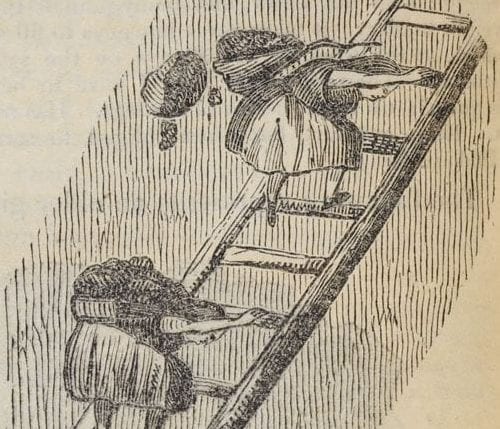
III: Slavery in Great Britain: Employment of Women and Children in Coal Mines
These extracts (below) are taken from the Parliamentary Report of the Royal Commission on Children’s Employment in Mines and Factories (the same report that prompted Elizabeth Barrett Browning’s poem). They were printed on the 28th of May 1842 in the English Chartist Circular, a journal which was closely associated with “Temperance Chartism” and “Knowledge Chartism.”
It has often been our painful duty, as public journalists, to record facts affording proof “strong as Holy Writ,” that the boasted liberty of the British empire was a mere name. We knew that in the mills and factories of this degraded land, an amount of crime and misery existed which no Christian could contemplate without horror and dismay. We were also aware that a number of young persons, including females, were employed in our various coal and iron mines, in which we knew they must of necessity be subjected to hardships and privations of no ordinary character. The disclosures, however, recently made, are of a character so horrible, and detail such scenes of horrible barbarity, as would be beyond all belief, did not the evidence of their existence rest upon such unimpeachable authority as can neither be controverted nor explained away.
The first Report of the Commissioners appointed “to inquire into the employment and condition of the children of the poorer classes in mines and collieries, and the various branches of trades and manufacture, in which numbers of children work together, excessive of those employed in mills and factories; and to collect information as to the ages at which they are employed, the number of hours they are engaged in work, the time allowed each day for meals; and as to the actual state, condition, and treatment of such children, and as to the effects of such employment, both with regard to their morals and their bodily health,” — has been laid before Parliament, and presents a picture of physical misery, mental ignorance, and moral depravity to which, we believe, the history of no other Christian land can present a parallel.